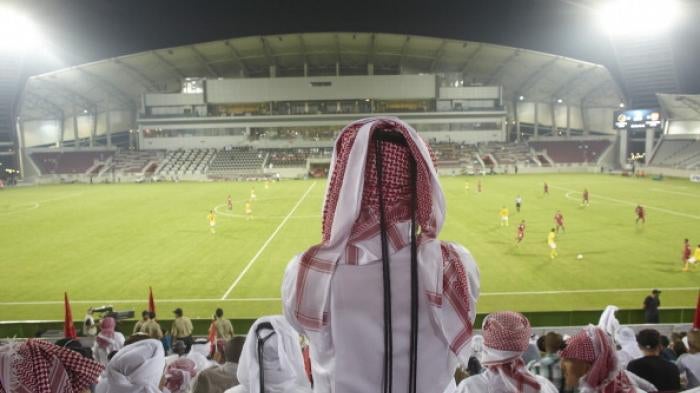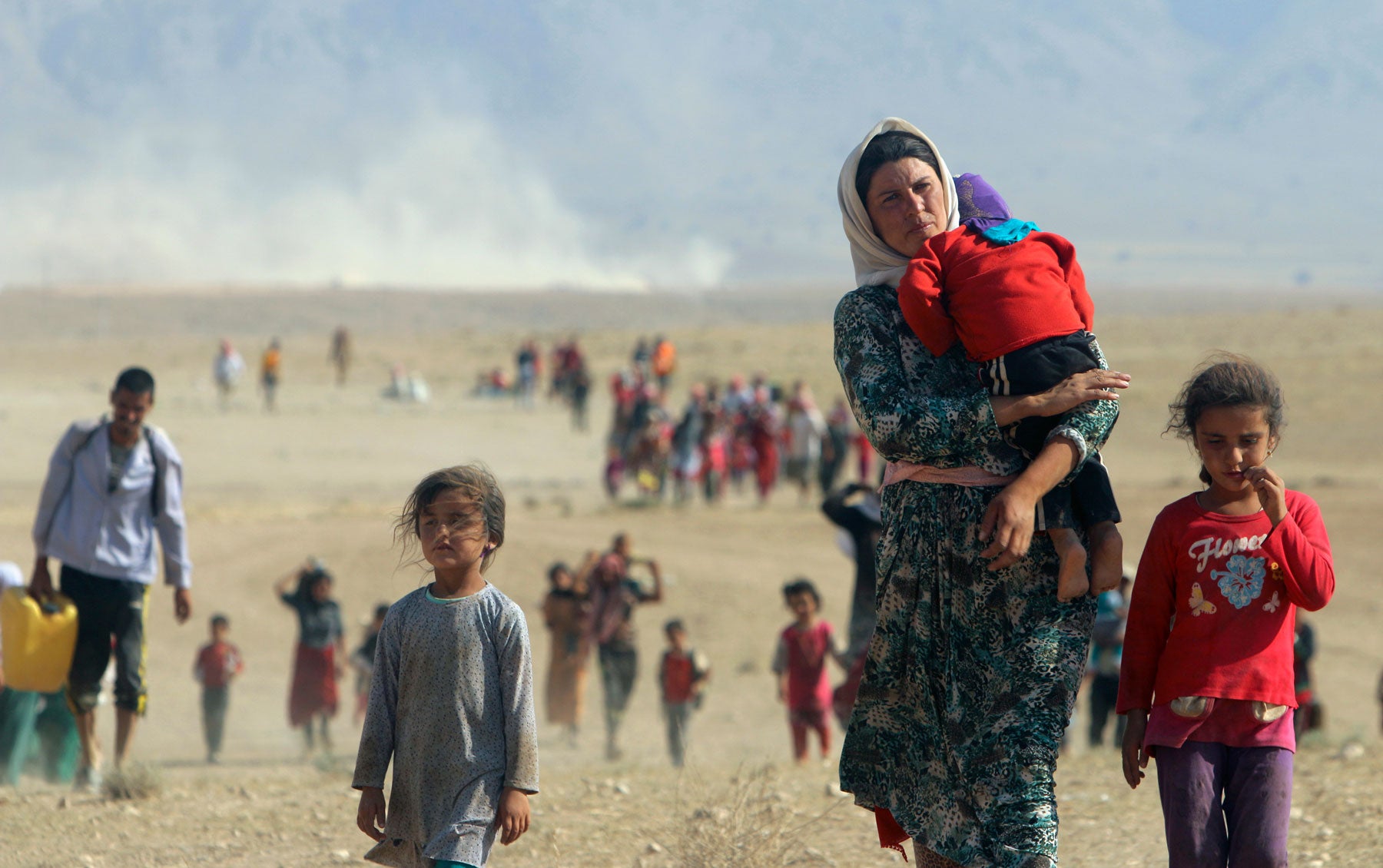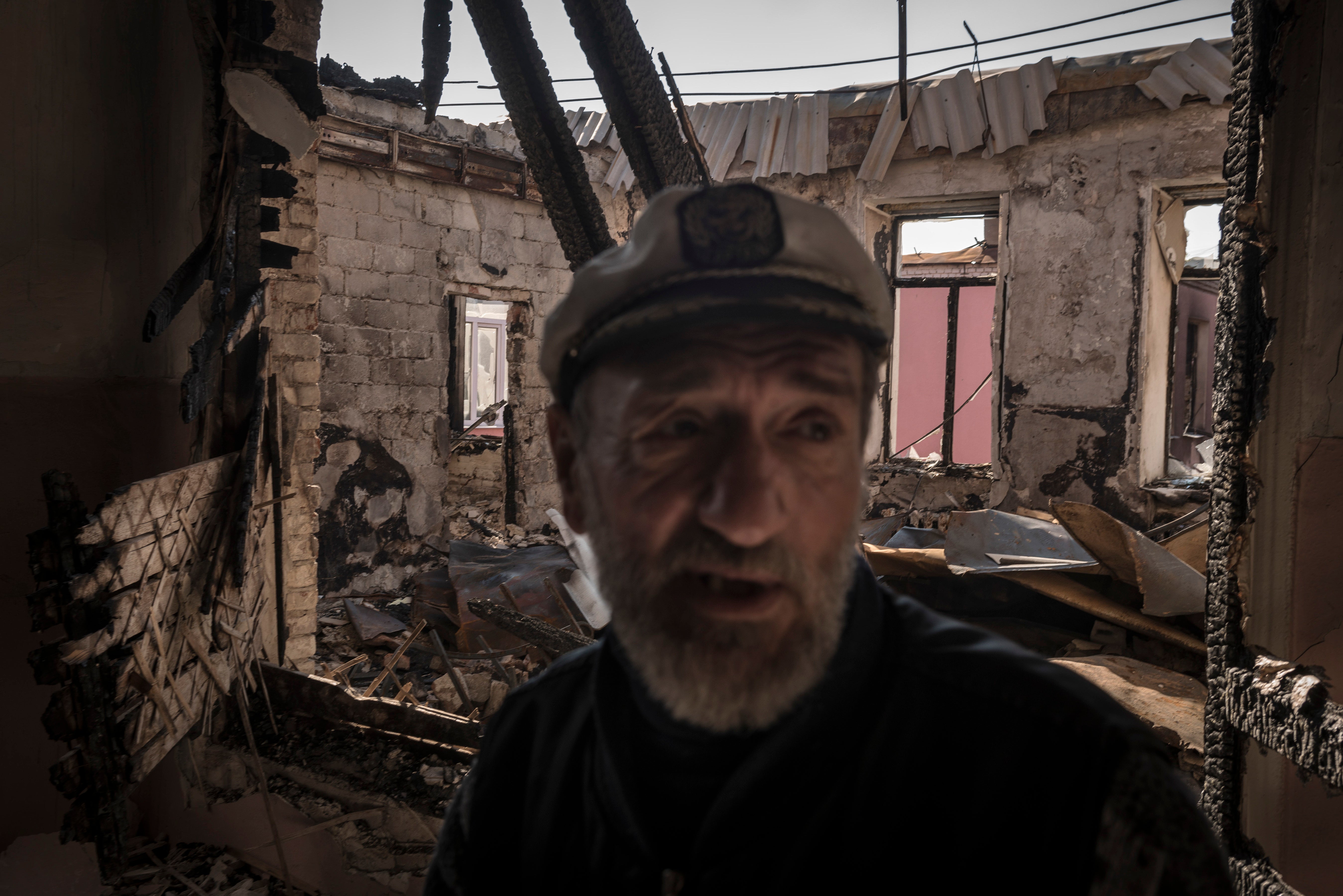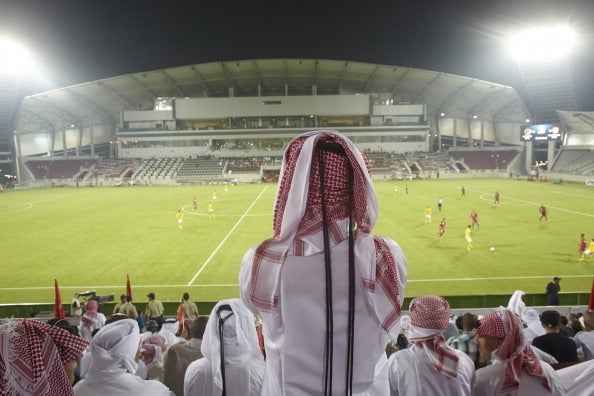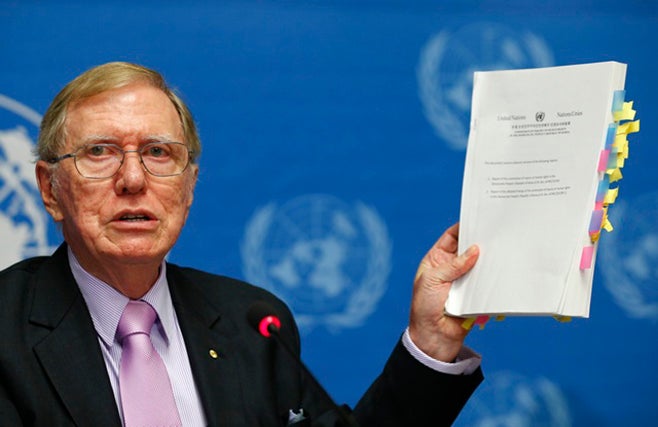By Minky Worden
As fireworks cascaded over Sochi’s February 2014 Winter Olympics opening ceremony, Anastasia Smirnova sat miles away in St. Petersburg police custody. A top Russian advocate for lesbian, gay, bisexual, and transgender (LGBT) rights, Smirnova had recently met with International Olympic Committee (IOC) President Thomas Bach to explain how the country’s anti-gay laws were creating a climate of violence and discrimination ahead of the Sochi Olympics. Russian authorities, keen to ensure that the Games’ luster not be sullied by exposure of human rights abuses, detained Smirnova as she held aloft a banner emblazoned with Principle 6 of the Olympic Charter: “Discrimination is incompatible with belonging to the Olympic Movement.”
Human rights were broadly trampled upon before and during the Sochi Olympics, amid forced evictions, violations of workers’ rights, a worsening crackdown on civil society and journalists, and anti-LGBT discrimination that caused worldwide revulsion. Looking ahead to future games, the human rights situation does not look much better.
Since South Korea and Tokyo have established domestic human rights monitors, their selection as hosts for the 2018 Winter Games and the 2020 Summer Games is not cause for alarm. But the outlook for the 2022 Winter Olympics—with Kazakhstan and China as the only contenders—should be keeping the IOC up at night.
Both countries have abysmal press freedom records and journalists languishing in jail. Beijing has launched its harshest crackdown since the 1989 protests in Tiananmen Square that ended in bloodshed, is jailing journalists, and is breaking an international agreement to allow free elections in Hong Kong. In Almaty, where peaceful dissenters are routinely imprisoned and labor rights often flouted, the IOC could experience a disastrous déjà vu of the Sochi clampdown and abuses.
This crisis of choice for 2022 should, finally, provide the impetus for the IOC and other international sporting bodies to reform a system that for too long has rewarded human rights abusers while often creating misery for local populations.
***
In October 2014, Norway—which had made respect for human rights part of its Olympic bid—pulled out of the contest to host the 2022 Winter Games, leaving Kazakhstan and China as the only contenders.
Oil-rich Kazakhstan craves the global prestige that hosting the Games would bring, while China is seeking to burnish its reputation on the world stage, as it did during the 2008 Beijing Games. Meanwhile, Azerbaijan is set to host the first European Games in 2015—launched and administered by the European Olympic Committees—against the backdrop of an escalating crackdown on critics in the country.
For too long, governments have said whatever it took to win the right to host the Olympics, only to be unreliable partners later on who flouted key promises as the IOC declared itself powerless to act. With Nobel Peace Prize-hosting Norway out, the IOC is well and truly stuck with the choice of two competitors for the 2022 Games with terrible human rights records.
In both China and Kazakhstan, peaceful critics languish in jail; each country has a recent history of censoring the Internet and crushing press freedom. Migrant workers in China who would build new stadiums face exploitation and dangerous conditions, while Kazakhstan’s abusive handling in 2011 of extended labor strikes and its recent adoption of a law on trade unions have serious curtailed freedom of association. Lawsuits against an advertising agency for a poster showing a same-sex kiss and renewed calls for a ban on “homosexual propaganda” in September expose Kazakhstan’s problematic record on LGBT rights.
To host the Olympics, governments pledge not only to build sparkling new stadiums but also to uphold the “Fundamental Principles of Olympism”—human dignity, press freedom, and a complete rejection of “any form of discrimination.” These principles are enshrined in the Olympic Charter, a lofty document that supposedly guides the Games’ preparation and advances “human dignity.”
Human rights crises around so-called “mega-sporting events” are not limited to the Olympics. The scale of abuse in Qatar as it builds a dozen 2022 World Cup stadiums and US$200 billion worth of infrastructure is immense: already, hundreds of South Asian migrant workers who toiled in the heat and dust of a highly abusive construction sector have been sent home in body bags, with authorities ignoring calls for investigations into their deaths. Russia has a grim record of failing migrant workers who were exploited and cheated as they built infrastructure for the $53 billion Sochi Olympics, and is set to host the 2018 World Cup.
The prospects for change now are greater than before: sports fans, corporate sponsors, and the general public are increasingly turned off by reports of human rights violations when sporting extravaganzas are staged.
With this perfect storm of abuses tied to, and often caused by preparation for, mega-sporting events, it is time for practical reform to encourage governments to clean up their human rights acts before hosting. International sporting bodies need to accept that awarding contracts for massive infrastructure to governments that violate human rights will only compound existing violations; while governing bodies for global sports need to reform from within, with the mantra that there is no successful sporting event where there are major human rights violations.
Mega-Sporting Events: Five Main Abuses
When athletes break the rules in Olympic competitions, they are harshly sanctioned. When host countries flout the rules, they have largely got away with it. Former IOC President Jacques Rogge often insisted that the Olympics are a “force for good” but refused to criticize blatant violations of the Olympic Charter by Olympic hosts.
Human Rights Watch has extensively documented how mega-sporting events can bring mega-violations when Games are awarded to governments who fail to respect human rights. No country has a perfect human rights record, but increasingly it is the more abusive states that most want to burnish their international reputation and need the patriotic boost gained by hosting world media and leaders for a global sport extravaganza.
Over a decade of research, Human Rights Watch has documented five signature types of serious human rights violations that are typically tied to mega-sporting events.
The first is forced evictions without due process or compensation due to massive new infrastructure construction. Before 2008, thousands of citizens in Beijing were forcibly evicted from their homes with little due process in terms of consultation or adequate compensation. Residents who protested the demolition of their homes were arrested. Fair compensation and due process were serious problems in Sochi as well.
As massive stadiums are constructed for opening ceremonies, soccer games, or swimming and other events, the bulk of the work is often done by abused and exploited migrant workers, who face hazardous working conditions, long hours, and being cheated of pay.
Major infrastructure construction often also leads to environmental and other complaints. The silencing of civil society and rights activists has been a signature abuse ahead of both the Beijing and Russian Olympics. Instead of the promised human rights improvements, the period leading up to the Beijing Games was marred by jailings and house arrests of activists who criticized the Olympics (including Sakharov Prize winner Hu Jia), and a three-year jail sentence for an environmental activist in Russia. In Beijing, citizens like 59-year-old Ji Sizun—who attempted to use the “Olympic protest zones” officially set up by the Chinese government to supposedly allow peaceful protest—were arrested. In Sochi, members of the feminist punk group Pussy Riot who staged a small protest during the Winter Games in February 2014 were visibly tackled and beaten by Cossacks while the police did nothing.
The Olympic Charter expressly guarantees press freedom—the sale of media rights is a major source of revenue for the International Olympic Committee. But both the Beijing and Sochi Olympics were marred by threats, intimidation, and arrests of journalists. When 25,000 journalists arrived in China to cover the Beijing Olympics, they were surprised to find Internet news blocked—until the IOC forced China to cease web censorship for the duration of the Games. News that China's milk supply was poisoned nationwide with melamine was censored until after the Games closed, and at least six babies died as a result of this tragic poisoning (and the media blackout about it). In the lead-up to the Sochi Games, Russian police harassed, detained, and threatened to imprison two journalists from a Norwegian television station, before sarcastically saying, “Welcome to Sochi” when the journalists’ ordeal was over. So egregious was their treatment that Russian authorities issued a rare apology.
Mega-sporting events are supposed to be moments to celebrate diversity and human achievement. But too often they are settings that expose ugly discrimination. Until just days before the launch of the London 2012 Olympics, Saudi Arabia was still planning to send a male-only national team, as in all past Olympics, and also to the 2014 Asian Games. Extreme pressure—brought about in part by Human Rights Watch’s “Let Them Play” campaign—finally led to two Saudi women being allowed to compete in 2012. But back in Saudi Arabia, as documented by Human Rights Watch’s 2012 report “Steps of the Devil,” the country still bans sport for all girls in state schools and has no women’s sports federations, a clear violation of the Olympic Charter’s non-discrimination clause.
In June 2013, Russian President Vladimir Putin signed into law an anti-LGBT “propaganda” bill. The law uses the pretext of protecting children to ban spreading information about equality, tolerance, and other issues affecting the LGBT community and demonized LGBT people and activists in the public eye. This has helped spark a surge in harassment and violent attacks against LGBT people, and the IOC raised no concerns about how this could be compatible with a commitment to non-discrimination.
In some parts of the world, women cannot even attend a sporting event as a spectator. Equal access to sporting events for women has become a serious concern, with the Fédération Internationale de Football Association, the international governing body for soccer known as FIFA, allowing a ban on women spectators for football matches since the 1980s in Iran. In 2012, Iranian officials extended the ban to volleyball matches.
Law student Ghoncheh Ghavami was arrested in June 2014 and jailed for months in Iran’s notorious Evin prison after she and others protested a ban on women entering a stadium to watch a World League match. In November, the International Federation for Volleyball (known as FIVB) called on the Iranian government to release Ghavami, and affirmed its commitment to “inclusivity and the right of women to participate in sport on an equal basis” at the organization’s World Congress. The FIVB flagged that Iran’s policy could limit its ability to host international tournaments in the future. Ghavami was released on bail in late November, but not before a revolutionary court convicted her of “propaganda against the state” and sentenced her to one year in prison. She was appealing the decision at time of writing.
In November 2014, the Asian Volleyball Confederation announced that it had selected Iran to co-host the 2015 Asian Men’s Volleyball Championships. Ghavami’s conviction and Iran’s continuing ban on women spectators attending men’s sporting events should prompt international sporting groups to pull all major tournaments from offending countries until women are guaranteed the right to attend matches as spectators without the prospect of arrest and jailing.
Taking a Stand, Making Reforms
It has often taken getting a major black eye in the press for the IOC to finally react to egregious abuses extensively documented by Human Rights Watch and other organizations. The IOC has responded to earlier scandals including doping, environmental degradation, illegal betting, and corruption with concrete reforms that included setting up an anti-doping agency, environmental impact statements, and term limits for the IOC leadership.
In the last century, the IOC helped combat discrimination in sport by banning Apartheid-era South Africa for sending whites-only teams, and Taliban-run Afghanistan for discrimination against women and girls. Facing public demonstrations that could have ended in a bloodbath, the IOC told South Korea’s military dictatorship to hold elections or it would jeopardize Seoul’s hosting of the 1988 Olympics (South Korea has since been a durable democracy and is due to host the 2018 Winter Olympics.
The International Olympic Committee and FIFA are the two largest players on the field of mega-sporting events. They need to use this crisis to act on reforms before the next Olympics and the next World Cup.
In autumn 2014, IOC President Thomas Bach put in place a series of reforms that Human Rights Watch has long sought that could curb abuses—a sign the body may no longer want to play ball with rights-violating host countries. Starting with the 2022 Olympics, the International Olympic Committee Host City contracts will include human rights and labor rights protections, including non-discrimination. Olympic Host City contracts have generally been secret and have never before expressly included rights protections.
The success of contract reforms will depend on how serious the IOC is about implementation. By picking up the reform baton dropped by his predecessors, the IOC and Thomas Bach could launch a new era of zero tolerance for serious abuses around mega-sporting events.
Russia’s Olympics, marred by entirely predictable rights abuses, may have been a turning point. As Human Rights Watch documented in a book-length 2013 report, Race to the Bottom, many migrant workers who built the Games’ infrastructure were abused and cheated of their wages. In some cases, those who complained were beaten and deported. The IOC ultimately took up those cases with Russia, which admitted that workers were still owed $8 million in unpaid wages and pledged to ensure that employers make these payments. Russia’s anti-LGBT law led to global protests by leading athletes and extensive negative press coverage. In September 2014, the IOC belatedly rebuked Russia by adding an anti-discrimination clause in future host city contracts and in December, in a unanimous vote, the IOC added "sexual orientation" as an explicit protected ground against discrimination in Principle 6 of the Olympic Charter.
Future Risky Hosts
FIFA has deservedly faced a firestorm of criticism for awarding the 2022 World Cup to Qatar without making labor reforms a prerequisite for them hosting the tournament. The result is that the migrant workers building football stadiums and billions of dollars of new infrastructure are highly vulnerable to trafficking and forced labor.
The “Supreme Committee for Qatar 2022”—the tournament’s quasi-governmental delivery committee—has pledged to improve conditions for workers on projects directly related to the World Cup.
But Qatar is not pledging to seriously reform exploitative laws such as the kafala system that ties workers to employers; it has refused to abolish a pointless and entirely illegitimate exit visa system that traps workers in the country; and it has not outlined how it plans to stop the systematic confiscation of passports and the imposition of illegal recruitment fees on workers.
Oil-rich Azerbaijan, where the government has recently jailed the country’s top human rights defenders, will host the inaugural European Games, which will take place in Baku in 2015 (the Organizing Committee is chaired by the first lady, Mehriban Aliyeva).
The European Games are organized by the European National Olympic Committees, which means that Olympic Charter human rights principles should apply. Despite the stated goal of “spreading throughout Europe of the Olympic ideals as defined by the IOC Charter,” the Azerbaijan authorities have instead been crushing critics, cutting foreign funding, and freezing bank accounts of independent groups, and threatening or jailing journalists and social media activists.
The European Games organizers should urgently study the ugly history of the 2012 Eurovision Song Contest hosted by Azerbaijan: the atmosphere for political activists and independent and pro-opposition journalists grew acutely hostile; critics were jailed, demonstrations dispersed, and activists were arrested.The December 2014 arrest of Khadija Ismayilova, Azerbaijan’s leading investigative journalist and ardent government critic, is a devastating blow to critical voices in Azerbaijan, and a clear violation of the Olympic Charter’s press freedom protections.
Bridging Words and Reality
The Olympic Charter states that “sport is a human right.” It elevates the principle of human dignity and proclaims, “The goal of Olympism is to place sport at the service of the harmonious development of humankind, with a view to promoting a peaceful society concerned with the preservation of human dignity.” Similarly, the FIFA statutes stress the importance of “humanitarian values” and state: “Discrimination of any kind against a country, private person or group of people on account of ethnic origin, gender, language, religion, politics or any other reason is strictly prohibited …”
For now, the IOC and FIFA have a serious problem: how to bridge the gap between these lofty words and the ugly reality on the ground.
One answer to this is to build human rights monitoring into the hosting process—assessing progress towards press freedom and international human rights standards, just as they now do to build ski jumps, swimming pools, and equestrian facilities on time. Similar changes are needed in the FIFA Statutes to ensure that dazzling soccer stadiums are not built on the backs of migrant workers toiling for low wages in hazardous conditions.
The IOC has a massive structure in place to evaluate host cities, and that same fly-specking care should be brought to bear on publicly available information on human rights abuses, in particular as they relate to the hosting of the Olympics. Spectators do not want to cheer in a stadium that costs not just millions of dollars—but dozens of human lives—to build. Social media can send news of a gold medal around the world in seconds, but it can also send images of water cannons and bloodied peaceful protesters.
Selecting future host countries should involve a complete and meaningful evaluation of governments’ commitment to respect human rights in compliance with international human rights norms, as well as the “Fundamental Principles” of the Olympic Charter. These standards can easily be included in the IOC Model Candidature for Olympic host countries, and compliance should be facilitated by making host city contracts public in the interest of greater transparency.
For all future mega-sporting events, evaluations of candidates should include human rights benchmarks, including those related to media and Internet freedom; fair compensation for forced evictions; labor rights for workers building venues; protections for activists and peaceful protests; and protection against discrimination, including based on race, religion, politics, gender, nationality, disability, or sexual orientation and gender identity.
Sports associations should not bring events to countries where women will not be welcome as spectators, or where they could get attacked or arrested for cheering a team. Sporting federations can and should play a positive role in quashing discrimination by insisting women have equal access to mega-sporting events and tournaments, which should not go forward with a male-only spectator policy, as in Iran. Sports leaders need to state in public that they will not back mega-sporting event hosts who violate the foundations of sport.
It is time to level the playing field and put an end to the high human cost of awarding mega-sporting events to repressive governments. In launching “Agenda 2020” reforms that include human rights protections for the first time, IOC President Bach has begun to take overdue steps in this direction. Now is the moment for FIFA and other international sports bodies to reform as well. There cannot be a truly successful global sporting event in countries where there are major human rights abuses.
----------------
Minky Worden is Human Rights Watch’s director of global initiatives
